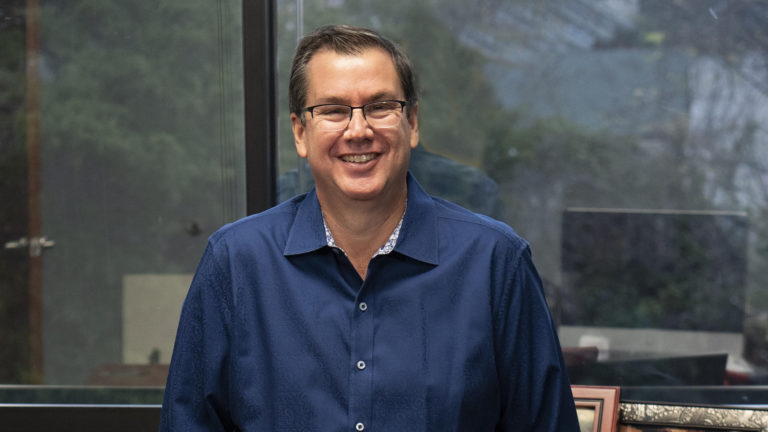Join getAbstract to access the summary!

Join getAbstract to access the summary!
Tom Ziglar
10 Leadership Virtues for Disruptive Times
Coaching Your Team Through Immense Change and Challenge
Thomas Nelson, 2021
What's inside?
Disruption is here to stay. Master these 10 virtues to develop yourself, your people and your business in uncertain times.
Recommendation
Motivational speaker and executive coach Tom Ziglar outlines 10 simple yet powerful virtues to coach your team through uncertainty and change. In succinct and entertaining fashion, he explains the importance of each ideal and how to apply it to your own life and leadership style. Ziglar peppers his explanations with ancient spiritual wisdom, modern success stories and entertaining anecdotes from his own life. Anyone who wants to thrive and coach in unpredictable times will find a wealth of useful insights.
Take-Aways
- COVID-19’s disruption of work and employees’ values calls for a new type of leader: the “Coach Leader.”
- Coach Leaders apply 10 virtues to create thriving teams.
- Develop kindness until it becomes an automatic response.
- Foster selflessness by serving your team.
- Cultivate respect to create a collaborative atmosphere.
- Nurture humility to learn faster and adapt better.
- Gain self-control to face the future with calm.
- Remain positive and prepare your team for whatever comes.
- Be a light to lead others through darkness.
- Never give up. Stand firm during crises.
Summary
COVID-19’s disruption of work and employees’ values calls for a new type of leader: the “Coach Leader.”
The COVID-19 pandemic caused two main disruptions: a disruption in work environments and a disruption in employees’ values. Work environments changed from in-person offices with strict hours to at-home offices with flexible hours. Employees’ values changed from a narrow focus on career to a wider focus on work-life balance and quality of life. Although many employees found working from home challenging at first, most have come to prefer it. A 2021 PWC survey found over half of employees want at least three days a week of remote work. But the pandemic crisis and remote work have placed special stresses on employees.
“The roller-coaster of accelerating change and sudden stops to business as usual has created a remote workforce that is anxious, dazed, isolated and longing for real connection.”
Remote work, flexible hours and quality of life concerns require a new style of leadership: the Coach Leader. The Coach Leader functions more like a sports coach than a traditional office manager. The traditional manager acts as a superior who delegates tasks by telling subordinates what to do, but the Coach Leader acts as a guide who co-creates game plans by asking team members what they think. Traditional managers supervise people to get results, but Coach Leaders guide people toward growth.
Coach Leaders apply 10 virtues to create an atmosphere for teams to thrive.
Coach Leaders create an atmosphere for top performance by leading an exemplary life and designing an intentional workplace. Ten specific virtues enable leaders to produce that atmosphere. When you apply these in your own life, you become a person who naturally thrives in disruptive times. This, in turn, enables you to design a workplace where other people can also thrive.
“Instead of asking ‘How do we lead during a time of crisis?’ let’s start with a different question: ‘What is the purpose of leadership?”
People want to feel their leader respects, hears, protects, values, connects with, appreciates, loves, leads and includes them. The 10 virtues ensure your leadership does all that. Four virtues help you develop your own character: kindness, selflessness, respect and humility. Three enable you to provide firm, nurturing leadership for your team: self-control, positivity and seeking the best. And three virtues help you deal with disruptions: being a light, perseverance and the ability to stand firm.
Develop kindness until it becomes an automatic response.
Develop kindness by being generous, friendly and considerate. Sincerity is key: Treat team members as people to engage with rather than problems or tasks to solve. Aim to develop kindness fully, so it becomes your automatic response to everything. Start by identifying unkind acts, refraining from them and retraining yourself toward kindness. Shaunti Feldhahn, a kindness researcher, developed a Thirty Day Kindness Challenge to do just that. When her team implemented it in workplaces, they found 89% of relationships improved. This happened in every workplace and environment, a startlingly consistent result.
“A true act of kindness is for the benefit of the other person, and the act often changes their view of the situation and how they react to it.”
To complete the challenge, choose one person to focus on. It can be anyone, but the more challenging the person, the more beneficial the result. Then follow the steps below for 30 days.
- When you interact with the person, don’t say or do anything negative. This includes both easy-to-identify actions such as criticisms and harder-to-identify behavior such as eye-rolling or not paying attention. When you need to give criticism, do it in a positive way.
- Find positive things to praise and affirm in the person. Tell the person directly, and tell other team members as well.
- Do one small act of kindness or generosity for the person every day.
Within only a few days, you’ll likely begin to feel more positive toward the person. If you’ve chosen a particularly difficult person, you might not ever feel warm toward her or him, but others’ experience suggests the relationship will still see significant improvements.
Foster selflessness by serving your team.
Develop selflessness by serving and supporting the goals of those you lead in a genuine and authentic way. Being selfless starts with understanding your people, their goals and how to lead them toward peak performance. Create lists of the qualities and skills you feel grateful for in each team member. Discover your people’s deep motivations by asking “Why?” multiple times. Establish an open-door policy, so team members know they can talk with you about difficult matters.
“We will always have a choice: Either fold up and go home or rise up and create a better world.”
Remove personal expectations from your service. Keep your standards for performance high, but stop anticipating any kind of reciprocation from the people you serve. This can sometimes prove tremendously difficult, but it will reorient your relationships from scorekeeping to gratitude.
Cultivate respect to create a collaborative atmosphere.
Build your respect for both yourself and your team. Respecting yourself means practicing positive self-talk, maintaining an active mind and body, moving toward a purpose, defining healthy boundaries for your life, and much more. Respecting your team doesn’t mean agreeing with everything they say or do. Instead, it means acknowledging their value. Actively seek out qualities and behavior worthy of respect, and give people genuine and specific praise tied to observable actions.
The respect you give to yourself and others comes back in the form of a respectful atmosphere where collaboration and innovation can flourish. To foster an environment of engagement, collaboration and creativity during meetings, try these two suggestions:
- Give appreciation, inspiration and recognition. At the start of each meeting, spend five to 10 minutes showing appreciation for specific team members. Offer inspiration by sharing quotes, songs and stories. End the AIR session by recognizing people’s accomplishments and giving specific praise.
- Include and respect every team member. Google’s Project Aristotle found the most effective teams practice inclusivity, respect and participation. Inclusivity means including everyone who needs to be there, allowing multiple communication styles – talking, texting, sharing documents and so forth – and ensuring everyone knows the meeting’s agenda. Respect means avoiding disrespect, welcoming all team members and ensuring everyone feels safe. Participation means everyone contributes.
Nurture humility to learn faster and adapt better.
Develop humility by giving up the idea you can or should know everything. Change your concern to knowing how to ask the right questions of the right people. Usually, solving a problem means finding a person who can help you solve it, instead of trying to do it yourself. So ask, “Who does this better than I do?” Learn from these people by asking questions about what they’ve done and how they did it.
“Humility is not thinking less of yourself; it is thinking of yourself less.” (theologian C.S. Lewis)
Humility can help you keep from getting in your own way, as it allows you to see your own blind spots and weaknesses. With humility, you can take ownership of mistakes and limitations. Humility enhances your growth and learning and helps you embrace change. Counterintuitively, humility can even boost your boldness, because results stop being about you and become about doing the right or necessary thing.
Gain self-control to face the future with calm.
Self-control means facing the future with calm. Keeping calm makes it possible for you to communicate effectively. Remember people are always watching you and forming impressions of you from the way you respond to challenging situations.
“Almost nothing can do more damage quicker than the loss of self-control in your communication.”
When under stress or attack, maintain your self-control by monitoring your mind-set. This means actively reframing your self-talk and beliefs in a positive manner and seeing problems as opportunities for growth. Know your purpose and beliefs in the situation. When a person attacks you, gain perspective by imagining how the person would be communicating with you if he or she felt secure. This helps you see the attack as coming from insecurity and can transform your own emotion from defensiveness to concern. Finally, remember your fundamental purpose in the room is to serve, and the way you need to serve might turn out to be different from what you had planned.
Remain positive to prepare your team for whatever comes.
Being positive doesn’t mean liking everything you do, but having a worthy purpose firmly fixed in your mind. It includes knowing you always have a choice in the things you do and the way you respond to situations. Your positivity animates every interaction you have and lifts up your entire team’s spirit. Positivity draws the best out of people and creates an atmosphere that brings out top performance.
To lead with positivity, ask action-oriented questions that lead to solutions. Identify and share positive inspirations. Include and affirm team members rather than excluding and denying them. Create gratitude lists and victory lists – lists of accomplishments – to dispel negativity and cynical attitudes.
“Coach Leaders understand that disruption is actually their competitive edge, because their focus is on growth.”
Seek the best in people and situations. This doesn’t mean being fake positive – it means recognizing the gold amid the dross and focusing on opportunities. Expect the best by actively framing your mind-set and beliefs to focus on solutions that move your team forward. Prepare for the worst by focusing on what you can control and coming to terms with what you can’t. Maximize outcomes by keeping a growth mind-set. See opportunities where others see problems.
Be a light to lead others through darkness.
Being a light means illuminating what might otherwise remain in darkness. Shine a light on the organization’s purpose and mission, so everyone can see these clearly. Shine a light on your team’s destination and on your own leadership style. Shine a light on challenges and obstacles. Light up your people, too, by making sure each of them has opportunities for recognition, development and promotion.
“One of the first things a leader should do is illuminate the purpose, mission and why of their organization.”
Help people shine by encouraging and equipping them to achieve goals. Then shine a light on their accomplishments. Another way to help people shine: Get every team member engaged in problem-solving and brainstorming sessions. Use the STICKY method:
- Say the problem – Explain it in detail.
- Talk the problem out – Every person in the room asks clarifying questions. Then restate the problem.
- Invent solutions – Everyone independently and privately writes down three ideas for solutions.
- Communicate the solutions – Everyone shares their ideas.
- Know your plan – Write a list of next steps.
- You get to work – Set a timetable and establish accountability.
Never give up. Stand firm during crises.
Never giving up means choosing to persevere through challenges and crises. To do this, be clear as to your purpose and role and how they align with the company’s value and vision. The following strategies can help you persevere through crises:
- Monitor the stories you tell yourself – Ensure they reflect positivity, focus and willingness. Also, watch out for the negative influence of others – don’t allow yourself or other team members to become susceptible to it.
- Break down large problems into small parts – Determine what you can control and what you can’t. Seek improvements in the areas you can control.
- Build momentum in other areas of your life – Choose another part of your life that needs attention, such as your fitness. Set a goal and work toward it. An achievement in one area of your life can stimulate you in other areas. This works for another reason, too: Quality of life equals quality of work, so bad health or bad relationships will keep you from performing at your best.
- Embrace challenges – Reframe every no as a step closer to a yes. In times of major challenge, stay focused on fundamentals.
“When you are able to stand firm like a lighthouse in the middle of a storm, you create an incredible confidence in your team that leads to productivity and performance.”
Standing firm means showing both strength – a strong spine – and vulnerability – an open heart. This mix of strength and vulnerability engenders trust, a key component to thriving in disruptive times. To help build trust, tell your personal story in a transparent way that allows people to identify with you. You’ll see many benefits: Your people will feel encouraged to take action and to seek help when they need it. Performance and productivity will climb because your people will trust you. And you’ll trust them enough to share ownership with them.
About the Author
Tom Ziglar is the CEO of Ziglar Inc. and the son of its founder, Zig Ziglar. He’s a motivational speaker, executive coach and co-host of the business podcast The Ziglar Show.
This document is restricted to personal use only.


























Comment on this summary